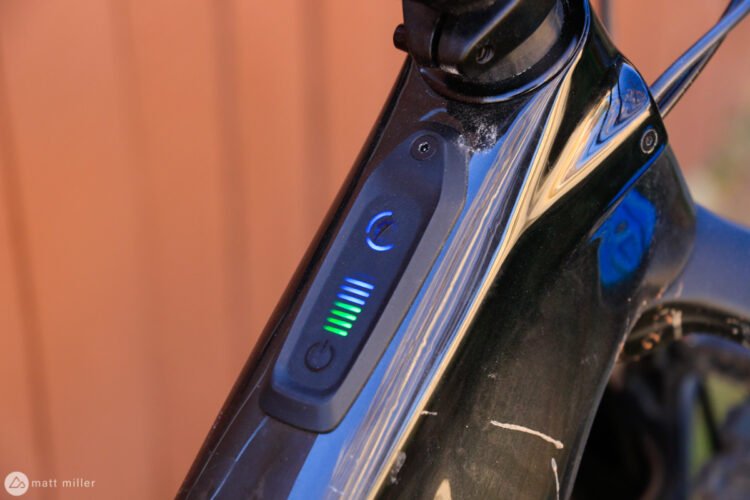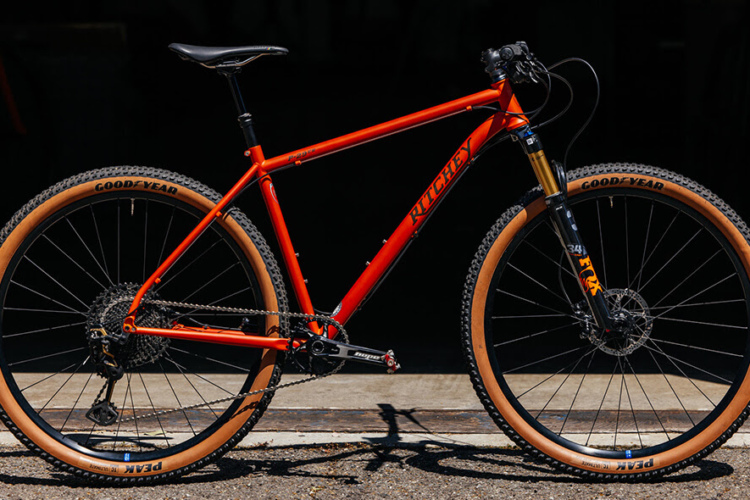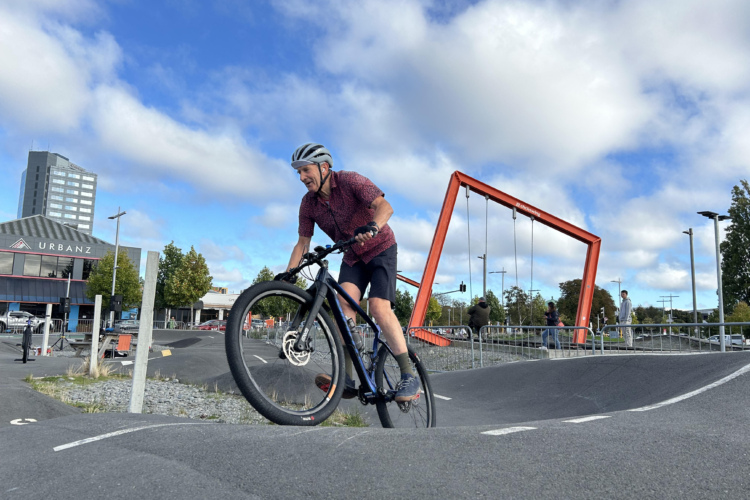
If you walk into your garage right now and look at your bike—or bikes—we can probably guarantee you one thing—it wasn’t made in the United States. Your bike was probably made somewhere in Asia unless you’re riding some custom, hand-built, small-batch frame.
And even if your frame was made here in the States, the components likely were not. In 2022, 97.8% of bikes were made elsewhere in the world and imported to the United States.
However, a new bill has entered Congress and hopes to change that soon. The Domestic Bicycle Production Act is drafted and supported by Oregon’s Congressman Earl Blumenauer and takes a three-pronged approach.
- Instituting a 10-year tariff suspension on imports of bicycle components (i.e. electric motors, frames, wheel rims, hubs, brakes, saddles, pedals, gears, etc.) to incentivize bicycle assembly operations in the United States.
- Creating a transferrable electric bicycle production tax credit for bicycles manufactured in the United States to encourage companies to utilize domestic manufacturing.
- Establishing a U.S. Bicycle and E-Bicycle Manufacturing Initiative to make low-interest, 12-year loans to purchase capital equipment toward establishing or increasing capacity of domestic bicycle manufacturing facilities.
The bill’s goal is to help reinvigorate American bike manufacturing, and the starting point is bike assembly. We wanted to find out how much the Domestic Bicycle Production Act could shake up an already struggling bike industry for the better or worse.
The Domestic Bicycle Production Act
Cycling advocacy is in no way a new avenue for Congressman Blumenauer. The Oregon elected official has everything from pedestrian bridges to awards named after him, all connected to cycling infrastructure. Portland, Oregon, has Blumenauer to thank for its internationally recognized network of bike lanes and paths.
Blumenauer also founded the Congressional Bike Caucus in 1996. For nearly thirty years, the Congressional Bike Caucus has brought other Congress members together to support the federal investment in cycling infrastructure. On top of securing $2.25 billion of federal funding, the Caucus has also developed a tax benefit for commuters riding bikes to the office.
The Congressman’s latest adventure, the Domestic Bicycle Production Act, reminds us of a time when the United States was heavily involved in bicycle production. In the early 70s, bike production was so high that Fortune Magazine highlighted it as a cover story. In 1973, over ten million bikes were manufactured here in the United States until demand declined, and the bike industry headed overseas to cut costs.
“We have really worked to diversify the Congressman’s work on trade policy focused on rebuilding the American manufacturing sector,” Jon Bosworth, Congressman Blumenauer’s Chief of Staff told us. “[The Domestic Bicycle Production Act] is part of the broader sweep of pro-worker, pro-domestic manufacturing and trade bills that Congressman Blumenauer has introduced.”
This bill has been in the works for a while now, but Bosworth said that now felt like the right time to introduce it. “We felt like these last couple of weeks posted an especially good time for us to introduce it given some of the concerns we’re hearing from the industry around the continuation of the 25% tariff for certain bicycles coming from China,” Bosworth said.
The 25% tariffs Bosworth is referring to are called Section 301 tariffs, which is an additional tariff on top of the 0-10% tariff many products already receive. Without getting into a major, in-depth political discussion on trade policy, 301 tariffs are put into place to penalize a country for intellectual property or other intellectual violations. 301 tariffs also come with exclusions, making it possible for certain imported goods to be excluded from the additional 25% tariff if they meet certain requirements. And, when administrations change, policies put into place by one president get overturned by the next, putting us in the situation we are in where goods once excluded from 301 tariffs will no longer have the exemption.
So, the hope is that if the Domestic Bicycle Production Act is passed, tariffs on bicycle imports will be suspended, allowing for easier bicycle assembly production in the US. Assembly works as a starting point, with the ultimate goal being a return of US manufacturing. “Thinking about a broader strategy of factory jobs, assembly is the quickest one you can turn on and put into use,” Bosworth told us.

How the act could help bike brands, and how a similar arrangement is already working in Europe
For Chris Cocalis, founder of Pivot Cycles, canceling import taxes is good. Regardless of current tariffs, Pivot already assembles the lion’s share of their bikes at their Tempe, Arizona, location.
“[Assembling bikes here] allows us to be flexible, offer more packages, and be the high-end brand that we are,” Cocalis told us. “The fact is that almost every part that we import has somewhere between a three and 11% duty on it.”
That doesn’t include the additional 25% duty Cocalis said some parts are receiving. All these import taxes make it difficult for a company like Pivot, which values having control over the assembly process, to be competitive. Having the bike assembled in Asia means paying a lower tariff but losing control over quality.
Pivot also has a German headquarters where frames and components are imported and built on-site. A critical difference between the German and Arizona headquarters is the tariffs, with Europe adopting its own “bicycle act.”
“Certain countries in Europe have really focused on the bike industry,” Cocalis said. “There’s an area in Portugal where they’ve gone after the bike industry and offered attractive things.” Europe had a similar exodus of bike manufacturing that is now returning to certain countries that, coincidentally, focused first on bike assembly.
Assembly eventually turns into manufacturing. Cocalis shared a conversation he had with the vice president of a pedal manufacturer who moved their assembly operations back to Europe. Once the assembly numbers hit one million units, it made sense for them to begin manufacturing the pedals in Europe.
Congressman Blumenauer and his team are also aware of this bicycle production boom happening in Europe. In the bill’s PR letter, Blumenauer’s office writes, “In 2022, a total of 14.7 million bicycles were produced in the European Union, a 10% increase from the prior year and a 29% increase over the prior decade.”

Bicycle component tariffs explained
For a deep dive and some not-so-light reading, there is a U.S. Customs Valuation Encyclopedia, which explains the tariff duty (rates) for each component imported. As you can imagine, the “behind the scenes” of import tariffs isn’t as cut and dry as it seems. Matt Moore, General and Policy Counsel at People for Bikes, tried to help us understand how the current tariff system operates.
“Every completed product, component, or raw material imported into a country has (1) a tariff classification otherwise known as an HTS (harmonized tariff system) code and (2) applicable tariff (duty) rates, which can vary depending on which country the product comes from,” Moore explained.
Products that fit within an established description are classified within their particular HTS code, and the duty rate percentage is applied to the product’s value, as declared by the importer. When products do not fit a specific HTS code, they fall under “catch-all” HTS codes based on the general product type.
These tariff rates can range from free to ten percent. For example, a shifter is free, while brakes have a 10% import tax connected to them.
It is important to remember that each bicycle component has a tariff connected to it. There isn’t just one tariff for drivetrains, but one for the cassette, derailleur, bottom bracket, etc. While some of those tariffs may be free, others aren’t, and they begin to add up. Or the bike can be assembled overseas, with an 11% duty applied to the complete bike—which many bike companies have elected to do.
But what about the few companies already manufacturing components in the United States? Won’t eliminating the tariffs on imported components hurt them?
“The bill would only eliminate tariffs on parts used for assembly, not imported components sold aftermarket,” Moore reminded us. He pointed out that many components manufactured in the U.S. tend to be higher-end and are for upgrades and custom builds, not OEM assembly.
However, components like Cane Creek headsets are commonly used in assembly. Moore explained that when there is domestic manufacturing of a product, the tariff rate is often higher—headsets are 10%—specifically to protect that production. Plus, getting headsets from North Carolina will still likely be more reliable than shipping them from Asia.
From tariffs to manufacturing
Moore emphasized that tariffs are just one aspect of the overall cost of manufacturing a bicycle. But, tariffs are an easy cost to cut to make domestic assembly and production more competitive with its foreign counterparts.
For Cocalis and Pivot, who already import components and build bikes here in the U.S., suspending the tariffs is the part of the bill they focus on. Low-interest loans and tax credits to bring manufacturing back to the States seem further off but are still viable for some.
However, some brands may benefit from the bill more than others. Specifically, larger ones. While these loans and tax credits are available to all, Moore explained that “A large company has more resources that would be needed to apply for and manage the loans and tax credits.”
For the few brands currently manufacturing in the States, the low-interest loans and tax credits of the Domestic Bicycle Production Act may be an opportunity to expand their production.
What about manufacturing already happening stateside?
But what about that less than 2% of manufacturing that does happen here in the States? If passed, what type of impact will the Domestic Bicycle Production Act have on them?
“To be honest, tariffs are just not something that is on my daily radar,” David Rosen, Owner of Sage Titanium Bicycles told us. Sage was founded in 2012 and has been hand-making titanium gravel, road, and mountain bikes in Portland, Oregon ever since.
For Rosen, part and component prices have remained fairly consistent, regardless of taxes or tariffs, since his company started over a decade ago. Rosen knows the taxes are there, but he doesn’t see their impact during day-to-day manufacturing or production.
Despite Rosen not seeing the impacts of the tariffs as he runs Sage, he sees the potential benefits that passing the bill could have. For Rosen, he zooms out and looks at it from a bigger issue than just the bike industry.
“I see it as sort of a cyclical thing,” Rosen explained. “Bike assembly and manufacturing means more jobs, which is good, but it is also more.”
More jobs doesn’t just stop at laborers actually assembling and building bikes here in the US. Rosen sees it as an opportunity for cycling infrastructure as a whole. It means more cities will adopt bike-friendly roads and paths, which in turn means more work for city planners, road crews, landscapers, and on and on.
And the bill ultimately encourages the growth of cycling in urban areas, it will certainly happen on the trails as well. More trails mean more trail builders, more trail associations, and more people getting into mountain biking and tourism. More mountain bikers equals more bike shops, which saw their doors closing during COVID.
“It’s creating jobs,” Rosen said. “There is a certain quality and pride connected with American-made.”
When?
Moore reminded us that the bill is still in its infancy. “The average bill takes seven years to get through Congress after it is introduced. We are at the beginning of the journey for this bill, but we have made a start.”
And the Domestic Bicycle Production Act does have an uphill battle. Moore said the goal of the bill isn’t so easy to achieve as it will take the backing of many members of Congress. While the bill certainly won’t allocate as many federal funds and resources as some others, it still asks Congress to invest in bicycles, which may not be viewed as a top priority.





















1 Comments
Jun 23, 2024